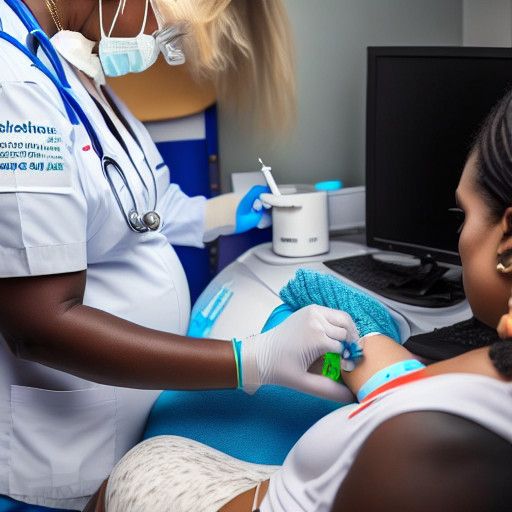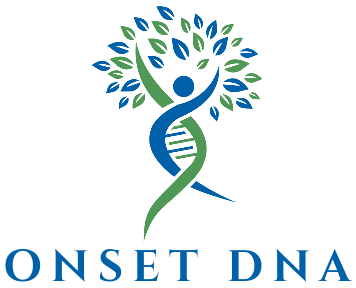
Noninvasive prenatal testing (NIPT) has become a breakthrough in prenatal care, offering expectant parents a safer and more accurate method for screening certain genetic conditions. But just how accurate is this test, and what does it mean for the health of your baby? This article explores the ins and outs of NIPT, its accuracy, and its importance in prenatal care.
Noninvasive prenatal testing (NIPT) is a blood test that analyzes the small amount of fetal DNA that circulates in a pregnant woman’s bloodstream. It is primarily used to assess the risk of the baby having certain genetic conditions, including Down syndrome (trisomy 21), trisomy 18, trisomy 13, and sex chromosome abnormalities. NIPT is noninvasive because it doesn’t require amniotic fluid or a tissue sample from the placenta, making it far safer for both mother and baby compared to invasive testing methods like amniocentesis or chorionic villus sampling (CVS).
NIPT can be performed as early as the 10th week of pregnancy, providing early and reliable results with minimal risk. The test works by examining the fragments of fetal DNA found in the mother’s blood and comparing them to a reference set to identify potential abnormalities.
NIPT results typically come back as either “high risk” or “low risk.”
If your NIPT results indicate a high risk for a genetic condition, it’s crucial to understand that this is not a definitive diagnosis. NIPT is a screening test, not a diagnostic test. In such cases, your doctor will likely recommend further diagnostic testing, such as amniocentesis or CVS, to confirm the results. These tests are more invasive but provide definitive answers.
Additionally, it’s essential to discuss the results with a genetic counselor, who can help interpret the findings and guide you through your options. While high-risk results can be concerning, many parents go on to have healthy babies, and the information can help with early planning and preparation.
NIPT is performed primarily to screen for the following conditions:
NIPT is also used for gender determination, though it’s not typically its primary purpose.
The optimal time to perform NIPT is between the 10th and 24th week of pregnancy. The test is most commonly done around the 10th week, as the fetal DNA can be detected in the mother’s blood at this early stage. Testing after 10 weeks is also highly accurate and can provide results sooner than other methods, such as the 12-week nuchal translucency scan.

One of the primary advantages of NIPT is its high accuracy rate. The test boasts accuracy rates of about 99% for Down syndrome, 97% for trisomy 18, and 92-95% for trisomy 13. It is far more accurate than traditional screening tests, such as the first trimester combined screening, which has a detection rate of 80% for Down syndrome.
However, while NIPT is highly accurate, it is not infallible. There are rare cases of false positives and false negatives, where the test may incorrectly indicate a risk or fail to detect an issue. It’s important to note that a low-risk result is not a guarantee of a problem-free pregnancy.
Yes, one of the additional benefits of NIPT is that it can reveal the sex of the baby as early as the 10th week. Since the test analyzes fetal DNA, it can identify the presence of Y-chromosome material, indicating a male fetus. If no Y-chromosome material is detected, the fetus is likely female. This can be an added bonus for parents eager to know the sex of their baby early on.
While NIPT is not mandatory, it is an excellent option for expectant mothers who want early and reliable information about their baby’s health, particularly for those who may be at higher risk for certain genetic conditions. This could include women over 35, those with a family history of genetic disorders, or those with abnormal results from other screening tests.
The NIPT test is a simple blood draw. A healthcare provider takes a blood sample from the mother, typically from her arm. The sample is then sent to a lab, where the fetal DNA is analyzed. Results usually come back within a week or two, depending on the testing center.
There are no significant risks to the mother or fetus with NIPT, as it is noninvasive. The procedure involves a routine blood draw, which carries minimal risk of complications, such as bruising or infection. Unlike invasive tests such as amniocentesis, NIPT poses no risk of miscarriage.
NIPT offers several advantages, including early detection, noninvasiveness, and high accuracy. For many parents, the peace of mind that comes with knowing their baby’s risk for genetic conditions makes the test worthwhile. However, because it is a screening test, the decision to undergo NIPT should be based on individual risk factors and preferences.
The cost of NIPT can vary widely depending on the provider and geographic location, ranging from $800 to $2,500. Some insurance plans may cover the cost, particularly if the mother is at higher risk for genetic conditions. It’s important to check with your insurance provider for specific coverage details.
Yes, NIPT can be done at 14 weeks of pregnancy. While it can be performed as early as the 10th week, it is still highly accurate if done later in pregnancy. The accuracy of the test remains consistent as the pregnancy progresses.
NIPT is often compared to other prenatal screening tests, such as the combined first-trimester screening (which includes a blood test and ultrasound) and the quad screen (which looks for four substances in the blood). While these tests provide valuable information, NIPT is generally more accurate and less invasive, making it a preferred choice for many expecting parents.
Invasive tests like amniocentesis and CVS provide definitive results but carry a small risk of miscarriage. NIPT, by contrast, carries no such risk and offers high accuracy in detecting common genetic conditions.
The advent of NIPT raises several ethical questions, particularly regarding how the results may be used. For example, some argue that it could lead to more abortions due to the detection of conditions like Down syndrome, raising concerns about discrimination against individuals with disabilities. Others worry that NIPT might lead to unnecessary anxiety or false security.
Expectant parents should discuss the ethical implications with their healthcare providers and consider personal, moral, and cultural factors when making decisions regarding prenatal testing.
NIPT is considered more accurate for Down syndrome than other screening tests such as the combined first-trimester screening. However, diagnostic tests like amniocentesis are definitive.
Down syndrome is rarely missed on NIPT, with the test having an accuracy rate of around 99%. However, there is always a slight chance of error.
NIPT is not 100% accurate and may require further diagnostic tests to confirm results. Additionally, it can be costly and is not universally covered by insurance.
No, NIPT is not 100% accurate. It has a very high accuracy rate, but it is still a screening test and cannot provide a definitive diagnosis.
Yes, while NIPT is highly accurate, there is still a small chance of false positives or false negatives.
NIPT is highly accurate, with detection rates of approximately 99% for Down syndrome and 97% for trisomy 18. It’s more accurate than other screening methods.

Empowering Families with Knowledge and Clarity through Convenient, Confidential, Compassionate Mobile DNA Testing.

